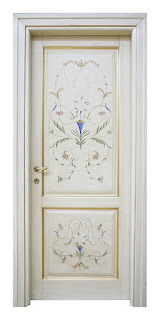Doors come in various types, materials, costs, openings, sizes, and designs. Some common types of doors include:
1. **Wooden Doors:** These are traditional and versatile, available in various designs and finishes. They can range in cost based on the type of wood used.
2. **Glass Doors:** These can be transparent or frosted, allowing light to pass through. They're often used for interior spaces and come in sliding or swinging options.
3. **Metal Doors:** Typically made from steel or aluminum, these doors are durable and offer security. They can be cost-effective but might require maintenance to prevent rust.
4. **Fiberglass Doors:** These are low-maintenance and can mimic the appearance of wood. They're resistant to warping, cracking, and rot.
5. **French Doors:** These are usually made of wood or glass, with multiple panels that swing open. They're great for creating an open feel between rooms or the outdoors.
6. **Sliding Doors:** These can be made of glass or wood and slide open horizontally, saving space and offering a modern look.
7. **Pocket Doors:** These slide into a hidden wall cavity, maximizing space and creating a seamless look when open.
8. **Bifold Doors:** They're made of multiple panels that fold together, often used for closets or room dividers.
As for costs, they can vary greatly depending on factors like material, design, and brand. Wooden doors have a wide price range based on the type of wood. Glass doors can be more expensive due to the kind of glass used.
Door sizes are typically standardized but can be customized. Common sizes include 24", 30", 32", and 36" wide for interior doors. Exterior doors are usually 36" wide.
Designs range from traditional to contemporary, with options like panel, flush, carved, arched, and more. Many manufacturers offer customization to match your style and needs.
Remember that prices, availability, and trends can change, so it's best to check with local suppliers or manufacturers for the most up-to-date information.
Several common problems can arise with doors, but many of them have straightforward solutions. Here are a few typical door problems and their solutions:
1. Squeaky Hinges: Over time, hinges can become noisy. To solve this, apply a lubricant like WD-40 or silicone spray to the hinges. If the problem persists, tightening the screws on the hinges might help.
2. Sticking or Binding: Doors that stick or bind can be due to humidity, paint buildup, or misaligned hinges. Sanding the edges slightly or adjusting the hinges can often resolve this issue.
3. Drafts and Air Leaks: If you feel drafts around your door, weatherstripping can help seal gaps. Apply adhesive-backed weatherstripping around the door frame to prevent air leaks.
4. Swelling or Warping: Wooden doors can swell or warp due to changes in humidity. If a door has swelled, you might need to sand it down slightly. Warped doors might require professional attention.
5. Lock and Latch Issues: Difficulty locking or latching a door can result from misalignment or a worn-out latch. Adjust the strike plate or replace the latch to ensure proper alignment.
6. Noisy Door Closings: Slamming doors can be annoying. Soft-close mechanisms, door dampers, or simply adjusting the door closer can help prevent loud door closing.
7. Loose Handles or Knobs: Loose handles can be tightened by tightening the screws or bolts holding them in place. If the holes are stripped, use longer screws or insert toothpicks coated in wood glue to create new anchor points.
8. Peeling Paint or Finish: Wooden doors with peeling paint or finish can be sanded down and refinished. Properly prepare and prime the surface before applying new paint or finish.
9. Cracked Glass: For cracked glass in doors, replacement is usually necessary. Contact a professional to replace the glass safely.
10. Rattling Noise: If the door rattles when it's closed, the strike plate might be loose. Tighten the screws securing the strike plate to the door frame.
Remember that some issues, especially those related to structural integrity or major alignment problems, might require professional assistance. If you're unsure about how to fix a door problem, it's best to consult a qualified door repair professional.













0 Comments
Please click on follower button